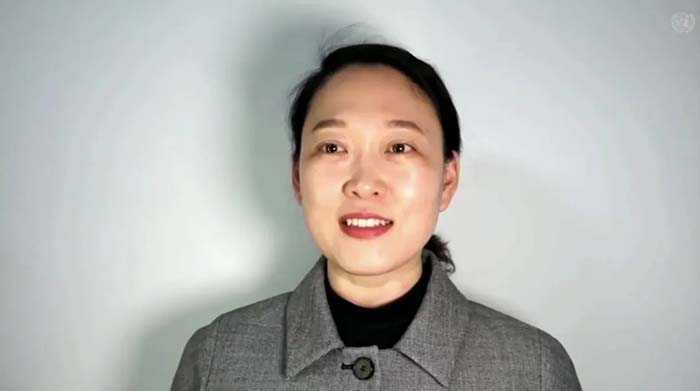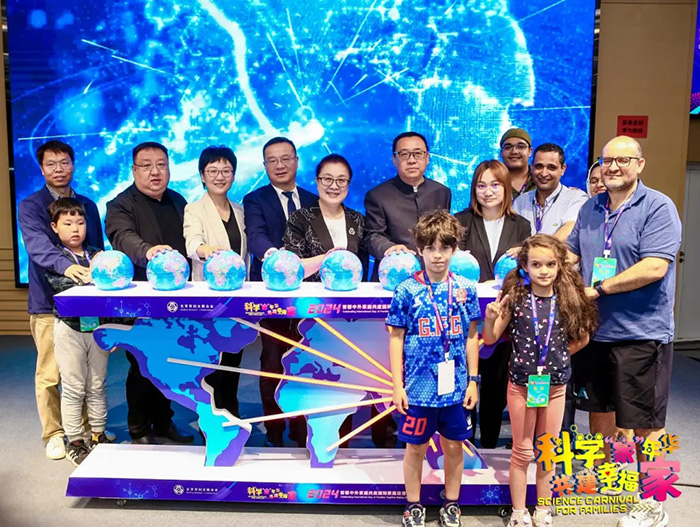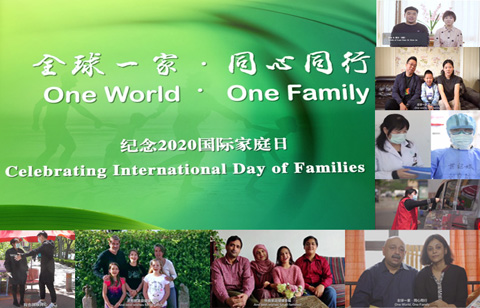Lawmakers Deliberate Draft Revision to Law on Scientific, Technological Progress
Date:2021-8-25 9:48:12 Views:On August 18, the 30th session of the Standing Committee of the Standing Committee of the 13th National People's Congress (NPC) deliberated a draft revision to the law on scientific and technological progress.
Shen Yueyue, Vice-Chairperson of the Standing Committee of the National People's Congress, said that it is both necessary and urgent to revise the law. According to Shen, the draft fully embodies General Secretary Xi Jinping's series of important expositions on scientific and technological innovation and is demand-oriented and problem-oriented. It especially clarifies the goal of boosting China's strength in science and technology, and adds three chapters to the existing law — basic research, regional scientific and technological innovation, and international scientific and technological cooperation. The revision is conducive to leveraging the country's institutional advantages, enhancing its scientific and technological innovation capabilities in accordance with the law, solving key technical issues that restrict development, enhancing the vitality of scientific and technological personnel, and accelerating the construction of a country with scientific and technological power.
Shen suggested that the principal role of enterprises in scientific and technological innovation should be further clarified in the law. She also suggested adding articles "The state encourages women to engage in scientific and technological work and supports women talents in undertaking scientific and technological projects; women's role in scientific and technological decision-making and counseling should be leveraged, and reproduction-friendly working environment should be created for women talents during pregnancy and nursing periods" and "If a project cannot be completed on time because women scientists are in their lying-in, pregnancy and nursing periods, the deadline could be appropriately extended." In addition, Shen suggested adding provisions corresponding to people's lives and health.
Regarding the two proposals related to women, Shen explained that the proposals are made to implement the spirit of General Secretary Xi Jinping's important speech on safeguarding and protecting women's rights and interests and fulfill China's commitment to the Convention on the Elimination of All Forms of Discrimination against Women (CEDAW). Moreover, there are supporting policies related to the proposals.
This June, the Ministry of Science and Technology and the All-China Women's Federation, as well as other 11 departments, launched a series of measures to support female researchers in playing a greater role in sci-tech innovation. They have put forward 16 specific solutions from seven aspects in response to some key issues in the growth of women talents. The country's implementation of the three-child policy has brought new changes to women talents' development. If some contents of the series measures are incorporated into the law, it will help further stimulate the innovative vitality of women talents, and leverage their roles in innovation-driven development and boosting the country's strength in science and technology.
"As a basic law in the field of science and technology, the law on scientific and technological progress plays an important role in safeguarding and promoting scientific and technological development, promoting sci-tech innovation, serving the economy and society and improving people's scientific literacy. Therefore, I hope this law will incorporate a gender perspective and improve some contents," said Deng Li, a member of the NPC Standing Committee. Deng added that many countries have adopted laws or special policies to support female scientific and technological talents. Therefore, implementing more measures and regulations in this field can not only create equal opportunities and environmental conditions for women talents, but also be a concrete manifestation of China's commitment to the CEDAW.
According to Deng, women sci-tech talents are an important part of the sci-tech talent team, accounting for about 45 percent of all talents, and make important contributions in basic theory, applied technology and engineering practice. However, high-level women talents are relatively scarce, and the proportion of women decrease as the academic level rises. In 2019, the proportion of women among the academicians of the Chinese Academy of Sciences and the Chinese Academy of Engineering was 6 percent and 5.3 percent, respectively. Among the experts and scholars selected by national talent plans, women account for about 10 percent only.
"It is obvious that the role of women talents in sci-tech innovation has not been fully leveraged," Deng said, suggesting that this revision of the law should take full account of the current differences between men and women and women's special interests, and provide legal protection for the development of women talents.
Paralleling Shen's proposals, Deng suggested establishing and improving the evaluation and incentive mechanism to make it more conducive to the development of women talents. Moreover, Deng suggested adding the article "the requirements for deadline and age for women scientific and technological talents in the assessment, evaluation and recruitment procedures can be appropriately relaxed when they are in their childbirth, pregnancy and nursing periods."



